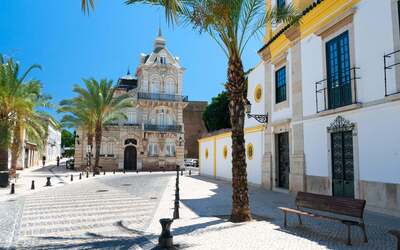This column was first published on ImiDaily. You can also check out this long-read on the same matter by Anatoliy Lyetayev with detailed statistics on The Portugal News.
Portugal is struggling with a housing crisis. The average price of buying real estate rose by 13.5% in the third quarter of 2022 alone. Many people in the country cannot afford to buy an apartment or house at current prices. Low-income families are particularly affected, and this is a large part of the population - in fact, more than half of Portuguese workers earn less than €1000 per month.
In February, the government introduced the "Mais Habitação" law project to address the issue, which suggested ending the Golden Visa program. According to Prime Minister Antonio Costa, investors who buy property do not create job opportunities and are contributing to the housing crisis. The initial version of the bill suggested that already issued visas could not be renewed and new applications would not be considered, even though the program had not yet been officially terminated. This raised concerns regarding the constitutionality of the government’s actions. Last Friday, the final wording of the bill was published which will now be discussed in parliament. The updated version is far less extreme and does not propose any retroactive measures. It is expected that already issued and applied-for visas will be granted as a special type of D2, allowing existing visa holders to renew their permits and retain the seven-days-in-a-year rule. However, the option to invest in real estate will no longer be available.
But are the Golden Visa holders really the ones responsible for the housing crisis? Let’s dive into statistics.
How many Golden Visas have been issued and how much have foreign investors invested in Portuguese real estate?
As of February 2023, a total of 11,758 Golden Visas have been granted, along with 19,171 residence permits for family members. 10,755 Golden Visas were granted via real estate purchase, and a total of €6,118 billion was invested in real estate out of a total investment of €6,852 billion.
How much real estate did they purchase?
Using data from the National Statistics Institute (INE) construction and housing reports, we can calculate that Golden Visa investors accounted for approximately 0.76% of the 1,174,000 units traded from the visa launch until the end of 2021, as per the most recent report. It is quite obvious that such an amount couldn’t potentially skyrocket the prices for the whole country.
What kind of property do they buy?
If we crunch the numbers and divide the total investments made in real estate by Golden Visa holders by the number of Golden Visas issued via the property purchase route, we get an average cost of €568,863 for a single real estate purchase by program participants. But let’s be real – properties in this price range are not the ones that are in short supply in the Portuguese real estate market. And if we’re talking about buying multiple units for rental purposes, chances are those units are already in the rental market.
If you are interested in more detailed statistics, check out our article on Portugal News. In this long read, we accumulated all the important market and Golden Visas information and made a deep analysis of these numbers and the market situation with the top experts in the industry.
Our article: here
What really triggers the rise in real estate prices?
Experts attribute the shortage of affordable housing options to various factors, including the booming tourism industry, high immigration flow, and a lack of social housing. Here are some interesting numbers.
The tourism industry in Portugal has been on the rise, with a record of over 26 million foreign tourists in 2019. Now the sector is rapidly recovering after the pandemic restrictions. A study conducted by the School of Economics and Management of the University of Porto has shown that the transfer of real estate from the residential sector to the tourist sector leads to a sharp increase in housing prices and significantly reduces the amount of housing available for long-term rental and purchase.
Additionally, Portugal has seen an increase in its immigrant population, which reached a total of 752,252 in 2022. While the number of Golden Visa holders represents the insignificant 0.38% of all immigrants last year, people coming through other visa programs often seek more affordable housing options, leading to increased competition in the market.
The shortage of social housing also is a critical aspect. Social housing accounts for only 2% of all public housing in the country, in contrast to other European cities where it is much larger. In Vienna, for example, social housing accounts for 60% of the total housing stock. The lack of social housing directly affects the most vulnerable groups of the population.
Also, let’s not forget the impact of the COVID-19 pandemic that has exacerbated the global housing shortage, with rising land prices and delays in construction projects.
Instead of banning foreign investment in real estate, the government could use it to address the housing shortage.
How can foreign investment be used to combat the crisis?
Donations to the national fund. Portugal could adopt a similar investment option as the Caribbean Five countries, where investors contribute to a national development fund in exchange for residency or citizenship. If half of last year’s Portuguese Golden Visa applicants choose the donation option at a reasonable level of €250,000, the country could receive €160 million in its budget. This could be used to construct approximately 325,203 square meters of housing for social or affordable rent purposes.
Repairing abandoned dwellings. In Lisbon, 25,999 buildings are unoccupied, representing about 15% of all city dwellings. Investors could be given the opportunity to buy and repair some of these buildings with an obligation to convert them into hotels or social housing. Alternatively, investors could renovate houses and rent them out with rental price limits set by authorities in exchange for residency permits and tax incentives on rental income.
Construction of new buildings for rent. Creating an option for direct investment in building houses for rent could constitute a true build-to-rent industry that could help solve the housing crisis in Portugal in a short period of time.
Commercial property investment. Restricting foreign investors to buying only commercial real estate under the Golden Visa program could attract money into the economy and create jobs, as well as reduce pressure on the tourist accommodation market (hotel investment).
As for concerns about money laundering voiced by the authorities, restrictions could be placed on passport holders from certain countries or a more rigorous compliance process could be implemented, similar to Malta’s diligent procedures, to minimize the risk.
In summary, a modified Golden Visa program with various real estate investment options could increase the housing supply, ensure security from the state’s perspective, and maintain profitability for investors. There are successful examples in other countries that Portuguese authorities could use as references.
Completely banning the real investment route will make Portugal less attractive for commercial investment. This may result in a missed opportunity to address the housing crisis in Portugal and instead create new problems. Instead of blaming foreign investors for the crisis, the Golden Visa can be used to encourage investment in construction and hospitality businesses or create various donation programs. Until the law is passed, there is still time to choose a mutually beneficial solution.









